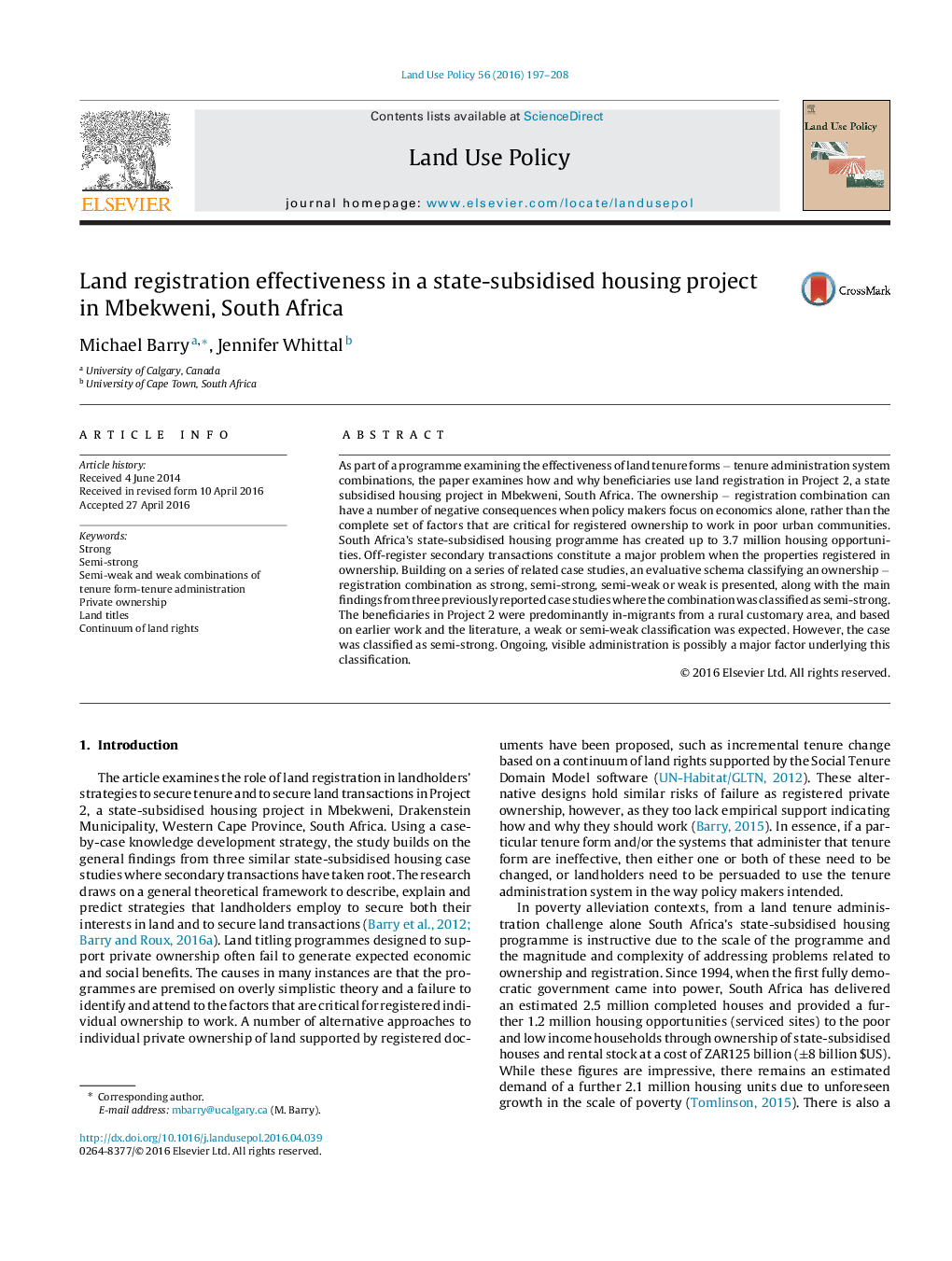| Article ID | Journal | Published Year | Pages | File Type |
|---|---|---|---|---|
| 6547192 | Land Use Policy | 2016 | 12 Pages |
Abstract
As part of a programme examining the effectiveness of land tenure forms â tenure administration system combinations, the paper examines how and why beneficiaries use land registration in Project 2, a state subsidised housing project in Mbekweni, South Africa. The ownership â registration combination can have a number of negative consequences when policy makers focus on economics alone, rather than the complete set of factors that are critical for registered ownership to work in poor urban communities. South Africa's state-subsidised housing programme has created up to 3.7 million housing opportunities. Off-register secondary transactions constitute a major problem when the properties registered in ownership. Building on a series of related case studies, an evaluative schema classifying an ownership â registration combination as strong, semi-strong, semi-weak or weak is presented, along with the main findings from three previously reported case studies where the combination was classified as semi-strong. The beneficiaries in Project 2 were predominantly in-migrants from a rural customary area, and based on earlier work and the literature, a weak or semi-weak classification was expected. However, the case was classified as semi-strong. Ongoing, visible administration is possibly a major factor underlying this classification.
Keywords
Related Topics
Life Sciences
Agricultural and Biological Sciences
Forestry
Authors
Michael Barry, Jennifer Whittal,
